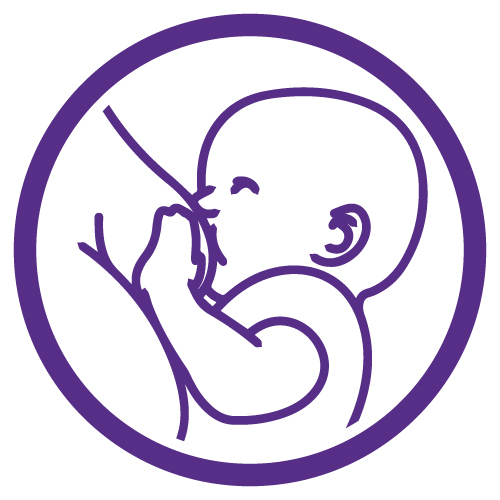 IBCLC Detailed Content Outline: Clinical Skills Focused CERPs - Section VII
IBCLC Detailed Content Outline: Clinical Skills Focused CERPs - Section VII
Access CERPs on Clinical Skills for the IBCLC Detailed Content Outline recertification requirements. Enjoy convenient on-demand viewing of the latest Clinical Skills focused IBCLC CERPs at your own pace.

Automated Control of Inspired Oxygen…. Is it the Future of Oxygen Therapy in Preterm Infants?

Dr. Souvik Mitra is an Assistant Professor and neonatologist at the Division of Neonatal Perinatal Medicine, Department of Pediatrics, Dalhousie University, Halifax, Canada. He completed his medical school and pediatric residency from Calcutta Medical College, India. Dr Mitra went on to complete his neonatal fellowship at McMaster University, Hamilton, Canada and is currently pursuing his Masters in Clinical Epidemiology from the same institution. Cerebral oxygenation and cardiovascular physiology in premature infants are his primary clinical research interests. He also has extensive epidemiological research experience having published a number of systematic reviews and meta-analyses. He has shared his research through webinars across Canada and the United States as well as through platform presentations at various international conferences. He has special expertise in targeted neonatal echocardiography and is a member of the Pan-American Hemodynamics (TnECHO) Collaborative.
There is increasing evidence that optimizing time spent within targeted oxygen saturation limits improves clinical outcomes in premature infants. Recent randomized clinical trials show that preterm infants who spend more time above the target saturation range tend to have increased retinopathy of prematurity and bronchopulmonary dysplasia, while those infants who spend a considerable time below the target range tend to have more necrotizing enterocolitis and death. Hence it is imperative that we find out the best way to optimize oxygen saturation targeting in preterm infants. Education programs followed by implementation of oxygen titration guidelines for the bedside nursing staff have been shown to have some benefit. However, the ever-increasing NICU workload often makes it impossible for nurses to adhere to strict oxygen titration guidelines. Automated control of inspired oxygen may provide some respite to the nurses as this recent technology has not only been shown to reduce nursing workload but also to improve oxygen saturation targeting in preterm infants. This is an exciting new innovation which, with more refinement in technology and practice, has the potential of becoming the standard of NICU care in future.

View Details / Enroll

Avoid Lawsuits and Pink Slips! Legal and Ethical Issues for the IBCLC

Liz Brooks is a private practice International Board Certified Lactation Consultant (IBCLC) and licensed lawyer, with expertise in criminal, administrative, non-profit, ethics, and lactation-related law. Liz offers in-home lactation consultations, and bedside care and teaching in two Baby-Friendly-designated hospitals.
She has been a leader in organizations for IBCLCs, breastfeeding promotion, and non-profit human milk banking. She authored the only textbook on legal and ethical issues for the IBCLC, and writes on health care ethics, equity, and conflict-of-interest in several books, blogs, and peer-reviewed journals.
She is a popular international conference speaker, offering practical tips with wit and wisdom for anyone who works with lactating and human milk-using families. Liz self-identifies as a cisgender hetero white woman with unearned privilege, and uses she/her/hers pronouns.
Topic: Using a Cool Head When You’re on the Hot Seat: Ethical and Legal Topics That Make Us Sweat, and How to Avoid Getting Burned - [View Abstract]
Topic: What’s Too “Friendly” for an IBCLC on Social Media? - [View Abstract]
Topic: Whiners and Deniers: Ethics and Diplomacy in Difficult Cases - [View Abstract]
This presentation is a first of its kind: a "survey course" of legal and ethical tensions unique to the IBCLC. Regardless of one’s other professional licenses or credentials, there are four primary practice-guiding documents for the IBCLC. After a review of those “rules of the road,” we’ll navigate a simple algorithm the IBCLC can use to determine what she could, should or must do, in any situation that sets off ethical red flags in the IBCLC’s mind. Then, we’ll hit highlights of legal and ethical issues for the IBCLC: certification vs. licensure vs. certificates-for-classes-and-courses; who is the patient/client?; conflicts of interest (and tensions from “wearing many hats”); intellectual property law; the (WHO) International Code; the IBCLC in the courtroom (as expert or witness); the IBCLC on the Internet; the IBCLC as breastfeeding advocate, and its corollary: the IBCLC as advocate for a breastfeeding mother.

Awakening the Parent: Are You Supporting or Sabotaging Your Client’s Transformation?

Dr. Britta Bushnell (she/her) is author of Transformed by Birth, host of the podcast Transformed, veteran childbirth educator, celebrated speaker, mythologist, wife and mother, and specialist in childbirth, relationship, and parenting. For over 20 years, Dr. Bushnell has worked with individuals and couples as they prepare for the life-changing experience of giving birth. Her work with parents has been enriched by her doctoral work in mythology and psychology, her years spent as a co-owner of Birthing From Within, as well as her dedicated study of solution-focused brief therapy, storytelling, and skills for supporting intimate relationships while parenting.
Britta is an engaging teacher, speaker, and presenter. Whether addressing a room of expectant parents, new mothers, or seasoned birth professionals, Britta has a way of captivating and inspiring them all. She has presented at conferences such as DONA International, MANA, ICEA, and Lamaze. Additionally, Britta has been featured on several popular podcasts including Informed Pregnancy, Birthful, and Atomic Moms. In 2016, in recognition of her transformative childbirth classes, Britta was awarded "Educator of the Year" by the Southern California Doula Association (DASC).
Topic: Awakening the Parent: Are You Supporting or Sabotaging Your Client’s Transformation? - [View Abstract]
Becoming a parent is a process of profound maturation, one that requires expectant parents to grow into decision-makers for their growing families. Teachers and experts in the childbirth and parenting fields naturally want to share their hard-earned wisdom with expectant parents. However, doing so without awareness may be unwittingly reinforcing the idea for new parents, that experts “out there” hold the knowledge needed to be make decisions in the best interest of their growing family. This effectively keeps expectant parents in the energetic position of the child (the one who receives guidance) rather than supporting them to grow into the position of the parent (the one who makes decisions and acts). If we want to help the expectant parents grow into autonomous and self-guided parents, educators must practice in such a way that inspires the growth needed in the parent rather than simply fill them with information. Flipping from the authority of teacher and expert to mentor or guide, reduces the hierarchical nature of the relationship and can help awaken the inner authority of the parent-to-be. Understanding this dynamic along with a few basic tools can help you better support your clients as they stretch into parenthood.

B Theory of Breastfeeding: Baby-Breast-Brain-Backup Axis (Mindfulness-Based Stress Reduction)

I am the mother of three breastfed children. Certified as an IBCLC in 2007, the next year, in 2008, setup the first IBCLC clinic in the medical center in Taiwan. As the President of the Chinese Lactation Consultant Association from 2015 till now. I have been teaching in the university for 30 years and as a part-time associate professor in the Department of Midwife & Women Health, National Taipei University of Nursing and Health Science, Taiwan now. After I retired from the university, I fund and as the CEO of WELL International Co., aims to promote the three-stages certification of profession lactation support competence.
Topic: Communications/Connection and Conflict Resolution Within the Extended Family - [View Abstract]
Breast is best. The World Health Organization recommends that exclusive breastfeeding for at least the first six months after birth. Breastfeeding 10 times a day and each lasts for 30 minutes for 180 days; that sum up to 54,000 minutes devoted for "healthy next generation". Wang (2008) propose the B theory of breastfeeding: Baby-Breast-Brain-BackUp axis, an interpretation and application of the lactation mechanism with a new perspective. Breastfeeding is involving physical, psychological and social aspects of life. How does the lactation consultant based on counseling skills, apply the Mindfulness-Based Stress Reduction (MBSR) to empower breastfeeding women, who can activate the positive brain feedback, prompt oxytocin reflexes, and bravely express individual needs. A breastfeeding friendly society therefore be fostered and the breastfeeding family could truly enjoy their breastfeeding goals & lives.

View Details / Enroll

View Details / Enroll
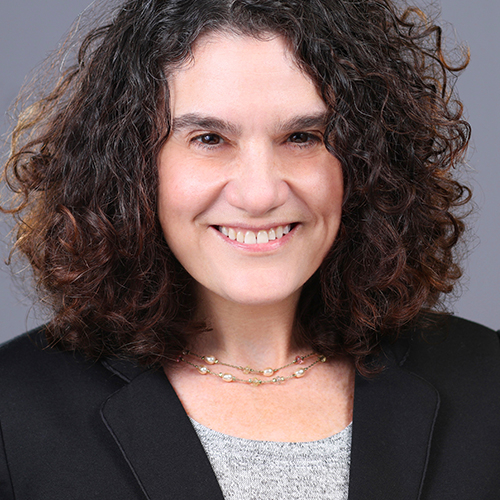
Babies With Suckling Dysfunction: Assessment and Coordination of Care

Leslie has been providing lactation support in Central New Jersey for over 18 years - as a La Leche League (LLL) leader since 2002, an IBCLC at Mercer County WIC from 2014 to 2016, and as a private practice IBCLC since 2011.
Leslie grew up in New York and New Jersey. She graduated from Cook College/Rutgers with a BS in Biochemistry, and from Rutgers University/UMDNJ with a PhD in Biochemistry and Molecular Biology. Leslie's difficulties with early breastfeeding, the help she received from LLL, and challenges with returning to work laid the foundation for her understanding of the importance of skilled and compassionate lactation and infant feeding support.
Topic: Untangling the Big Picture of Tongue-Tie Assessment - [View Abstract]
IBCLCs assess chest/breast and bottle feeding skills and infant’s oral and body anatomy, and the motions that contribute to, or inhibit, the process of feeding as well as post-feeding comfort (digestion and elimination for infant, breast comfort for parent). When infants present with feeding dysfunction, the root of the issue could be from a variety of sources - effects of in utero positioning, prematurity, effects of birth interventions, tight frenulum (ties), asymmetric/tense muscles/fascia, neurological/ reflexive issues, low/high muscular tone, or suckling discoordination, suck-swallow-breathe discoordination, laryngomalacia, compensations for low supply, cleft lip/palate, and more. IBCLCs help families navigate the differential assessment of feeding dysfunction, and at the same time support the family’s feeding and milk supply choices.
This presentation will examine the role of the IBCLC when suckling dysfunction is occurring - for example aiding with latch and bottle feeding, oral/body exercises, referrals for oral evaluations and/or bodywork, or help with frenotomy pre/post work if needed. IBCLCs adjust the care plan as the infant’s feeding skills and parents’ goals grow and change. Developing the skills to aid oral function, and coordinate with specialized practitioners to aid this process, is crucial in order to determine the best course of clinical care, meet the families needs, and allow for the best possible outcome.

Baby Shark Do’s, Don'ts, Decisions, and Dilemmas. Creating a Supportive Lactation Care Plan for a Family with Tethered Oral Tissues.

New moms come to Tamara Hawkins for a birthing and breastfeeding plan, but what they get is the permission to abandon beliefs about what the experience should be. What they get is the insight to define their own journeys to and through motherhood—one unpredictably beautiful step at a time. What they get is the confidence to toss the all parenting books aside and to trust their own yes. As the Director of Stork and Cradle, Inc., a passion-fueled prenatal education group specializing in childbirth classes and lactation consultation based in New York City, Tamara brings over twenty years expertise as a Maternity Nurse and Family Nurse Practitioner to deliver classes and programs that blend holistic knowledge and clinical care for mothers and their babies. As instructors and consultants, Tamara and her team offer insight and advice that is data driven, educationally sound, but most importantly, empowerment focused. With Stork and Cradle, women soon realize that their success as moms is not determined by epidurals or pumped ounces, but rather by the power that comes with honing their intuition and simply flowing and flourishing with their babies. An impassioned advocate for birth and breastfeeding equity, she is a Lamaze Certified Childbirth Educator, an International Board Certified Lactation Consultant and a Certified Holistic Health Counselor. Her private practice as an IBCLC accepts several private insurances. Learn more about her work at www.storkandcradle.com.
Trending in lactation consultants’ conversations are concerns of parents choosing not to release tethered oral tissues, declining structural realignment work, choosing frenotomy providers that are not on preferred consult lists, and experiencing less than desired outcomes or breastfeeding cessation. How can IBCLCs support families that might otherwise be ambivalent to body work, releasing restrictions, and follow up to ensure continuity of care and breastfeeding success? In this talk, we will explore the journey of holistic lactation care starting from a functional feeding assessment to helping parents reach a self-imposed goal of breastfeeding success with babies that have tethered oral tissues.

Back to Basics for Cleft Lip and Palate: An Overview of Strategies to Support Lactation in the Neonatal Period and Beyond

Alice Farrow is an IBCLC, writer, speaker, and infant feeding and health equity advocate. Parent of a child born with a cleft lip and palate, Alice has worked extensively, since 2006, with parents, parent organisations, cleft teams health providers and lactation specialists in order to increase awareness of the specific challenges faced by cleft affected infants and their families and to imprve access to adequate lactation support for this community.
Currently based in Rome, Italy, Alice advocates for, and teaches regularly on, the topic of breastfeeding/chestfeeding with an oral cleft via presentations, courses, articles, booklets and handouts and supports parents and professionals wordwide via their Cleft Lip and Palate Breastfeeding website and associated online support group, and in person and distance consultations.
A common misconception among care providers and families is that babies born with an oral cleft cannot breastfeed/chestfeed. This presentation corrects that misconception by exploring cleft types and their expected breastfeeding/chestfeeding outcomes and sharing tools that lactation specialists can use to more effectively support parents when their baby is born with a cleft lip/palate. In particular, during the neonatal period, the lactation specialist is uniquely positioned to support parents to make informed decisions about their feeding choices and create a going home care plan to help them achieve their breastfeeding/chestfeeding goals in the long term.

View Details / Enroll

View Details / Enroll
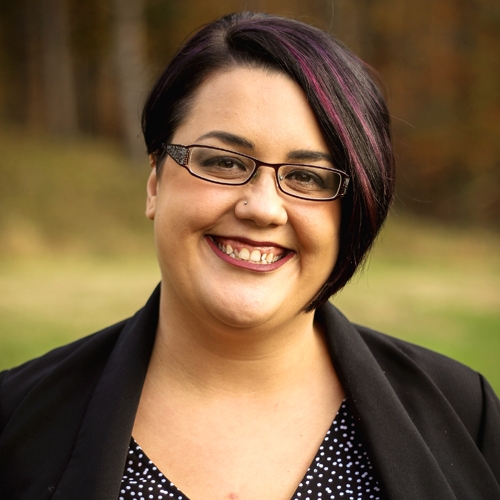
Barriers to Breastfeeding in Appalachia: A Sociocultural Perspective

Stephanie Carroll is an International Board Certified Lactation Consultant (IBCLC) who lives in southeast Ohio with her two daughters. She founded the Appalachian Breastfeeding Network in May of 2016. Now has grown to over 500 members across 15 states. Stephanie owns a private practice and works for a Breast Pump DME part-time. She also works as a speaker and marketing manager for Lactation Education Consultants. She continues to work towards transformation of breastfeeding culture, women's health equity, and increasing access to care in Appalachia, giving a voice to Appalachia, which continues to be underserved and overlooked.
The issue of lower breastfeeding rates in Appalachia goes beyond poverty – as many women in the region are willing to travel out of the area to receive good care. Why isn’t access to care easier to obtain in these rural areas? Why are women getting most of their prenatal education from their family members – making much of the education outdated and incorrect? Why have these women lost trust in their healthcare providers that are local?
The answers to these question reverts back to two major conclusions:
- Women are still considered second class in Appalachia and;
- Many healthcare providers do not understand Appalachian culture in order to serve them in the best way possible.
This presentation will discuss: a. What these specific barriers are; b. How we, as health professionals, can approach these barriers; c. How to help to create a new culture trend; and d. How to empower Appalachian women to take hone of their healthcare – specifically their birth and breastfeeding journey.

View Details / Enroll
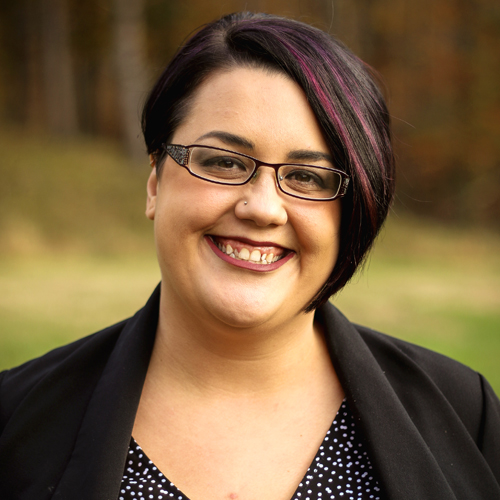
View Details / Enroll
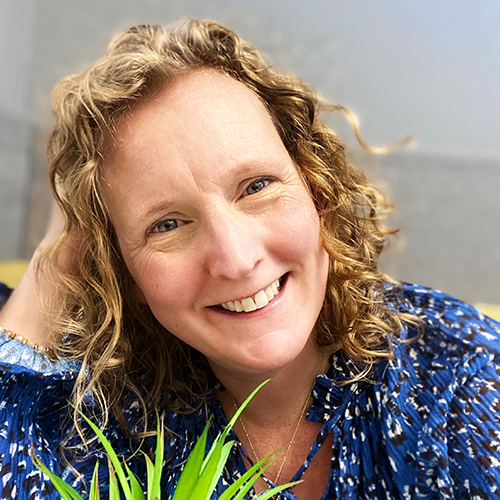
Being Mindful: Case Studies of Mindfulness Tools in Clinical Lactation Practice

Anna Le Grange is an International Board Certified Lactation Consultant, Registered Pediatric Nurse, Mindfulness teacher and Author. She has worked with new families for over 20 years in a variety of clinical roles. Anna brings her passion for psychology, neuroscience and mindfulness into her lactation support work and facilitates other professionals to incorporate emotional well-being tools into their own lactation practice. Mother to 3 children, Anna breastfed her 3rd child following breast reduction surgery and experienced first-hand, the emotional challenges that so often relate to infant feeding complexities. She used her personal experiences alongside mindfulness and lactation knowledge, to create a toolbox of techniques for breastfeeding families, which she includes in her courses and book, The Mindful Breastfeeding Book. Anna believes whole-heartedly in prioritizing calm and connection within our breastfeeding support practices, both for our clients and ourselves. Anna is currently studying for a MSc in Positive Psychology at Buckingham New University and has spoken at various events including the Gold Lactation, ILactation Conference and Nurturing The Future.
Topic: Being Mindful: Case Studies of Mindfulness Tools in Clinical Lactation Practice - [View Abstract]
Topic: Breast/Chestfeeding After Breast Reduction - [View Abstract]
Topic: Working With Anxious Parents and Fussy Babies - [View Abstract]
Bringing self-awareness and self-compassion into our work as healthcare professionals and lactation supporters, enables us to thrive in the work that we do and offer a higher quality and more ethical service to struggling clients. The case studies shared in this presentation offer a unique look at how mindfulness and self-awareness can be used to help navigate the complexities of each case. Learn more about the ways that stress in the feeding parent can impact lactation, how to identify the emotional considerations of a client’s situation, mindful breastfeeding tools and ways that providers can meet their own needs while working on challenging cases.
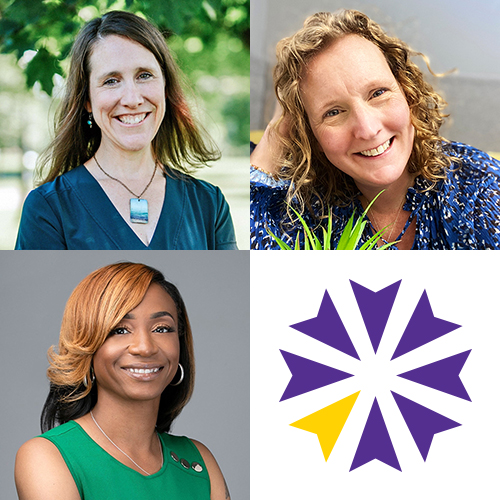
View Details / Enroll

Best Practices to Support Breastfeeding in Neonatal Intensive Care

Kathie, an Associate Professor of Pediatrics, University of CT School of Medicine, is a neonatologist, member of the Human Milk Research Center at CT Children’s Medical Center, Hartford, CT, and graduated from Cornell University and Cornell University School of Medicine, completing postgraduate training in Pediatrics, Pediatric Nephrology and Neonatology at Children’s National Medical Center, George Washington University, Washington DC USA. In the inaugural group of physicians designated “Fellow of the Academy of Breastfeeding Medicine” (FABM), she served twelve years on the ABM Board of Directors, chaired the Protocol committee, and chaired the United States Breastfeeding Committee 2013-14. Elected to the International Lactation Consultant Association Board July 2014-17, she is a member of the American Academy of Pediatrics Section on Breastfeeding, serves as the AAP Connecticut Chapter Breastfeeding Coordinator since 2000, and Chairs the Baby-Friendly USA NICU Initiative. Initially founding Medical Director of the New England Mother's Milk Bank she is currently co-Medical Director of the Mothers' Milk Bank of the Western Great Lakes and has authored many chapters, monographs, peer-reviewed manuscripts, and ABM protocols. Her research centers on breastfeeding and the use of human milk in the NICU, cup feeding, donor milk/donor milk banking, the Baby-Friendly NICU, global maternal-child issues and the education of medical professionals. Lecturing extensively in the United States and abroad, she resides in Glastonbury, CT, her greatest accomplishment her 4 amazing young adults, 19 to 29 years of age.
Topic: The Science and Significance of Human Milk and Breastfeeding in Neonatal Intensive Care - [View Abstract]
There are many challenges faced by mothers, families and staff with the hospitalization of a sick or premature infant that affect lactation and breastfeeding. These include mother-infant separation, initiation and maintenance of lactation by milk expression, compromised milk production, barriers to infant-mother-parent bonding, the need for family-centered care, and the many issues related to continuity of care both during the hospitalization and between facilities and caregivers. We will explore current evidence concerning the support of mothers’ and families’ choice to transition from milk expression to breastfeeding of their infants in intensive care. While our knowledge of the importance of human milk has grown immensely with respect to nutrition, acute and chronic disease risk reduction and prevention, neurodevelopment, physiology, and the intestinal microbiome among others, there remains a gap in the translation of this knowledge into the practice of transition of human milk feeding to breastfeeding in many countries, regions and individual intensive care units/wards. It can be done—we will explore the evidence for how!









